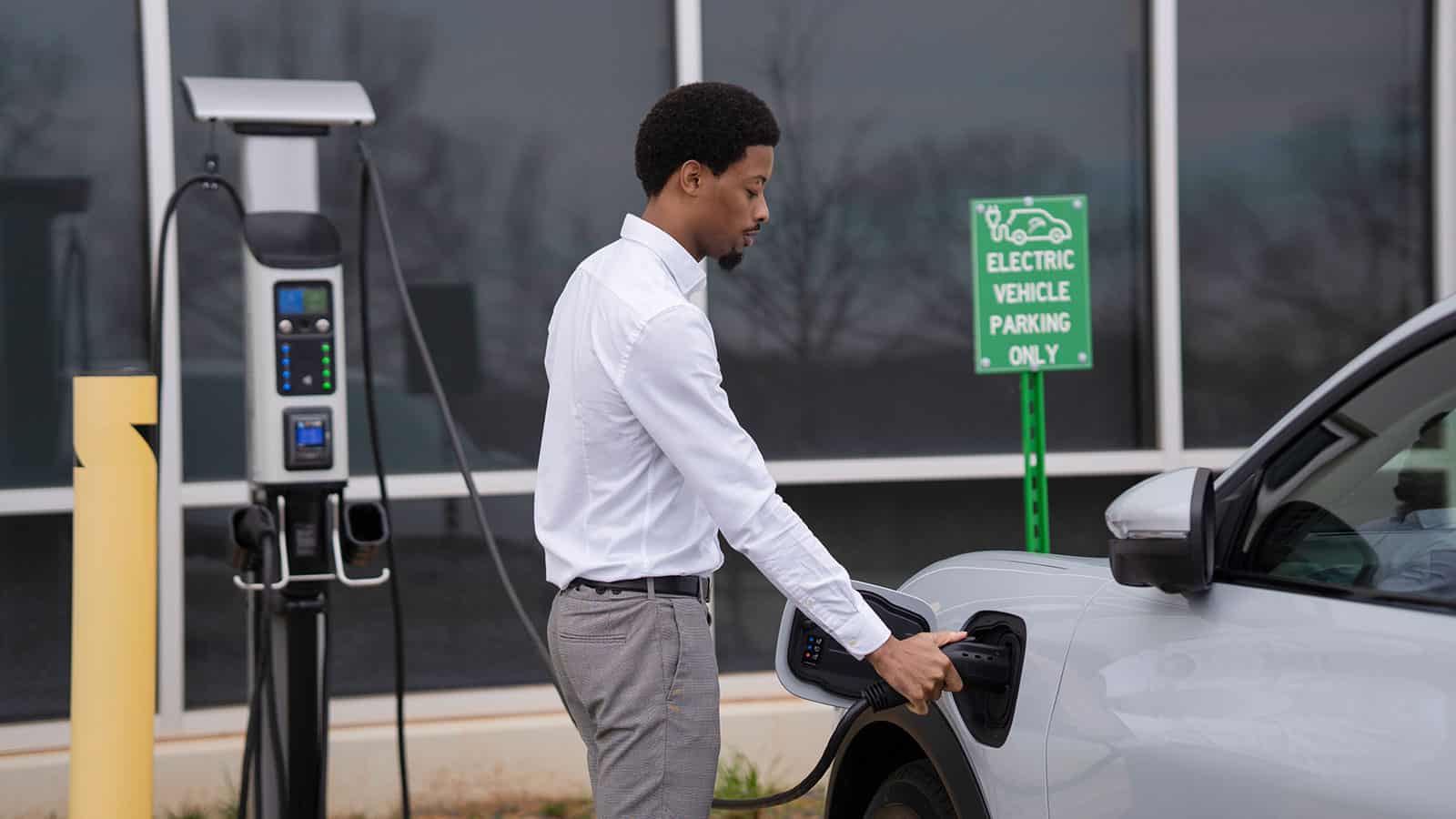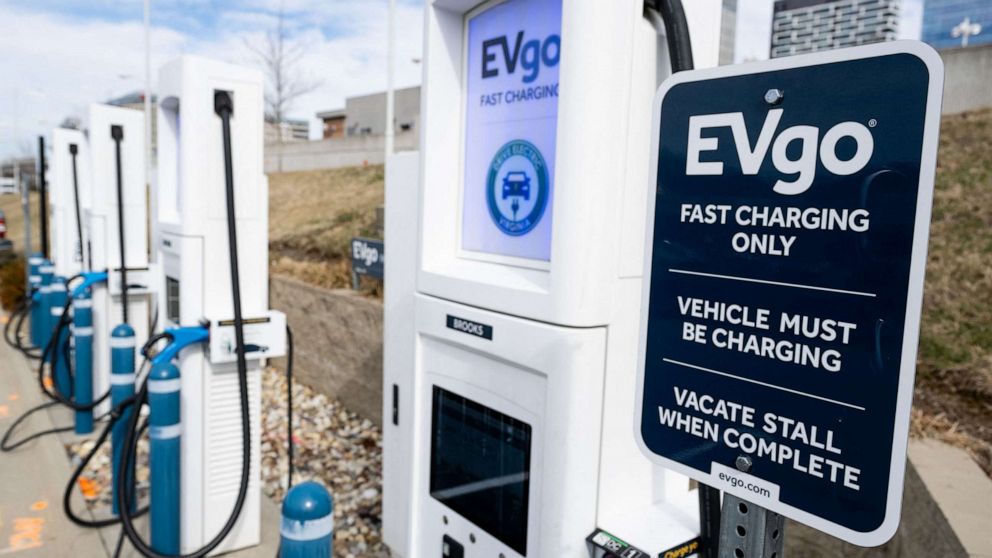How to Make Smarter Decisions in EV Investments by Buying EV Charging news
How to Make Smarter Decisions in EV Investments by Buying EV Charging news
Blog Article
New Dope in EV Charging: How the Market Is EVolving to Meet Need
As the electric car (EV) market continues to expand, the charging facilities is going through significant transformations to address the surging demand. The implications of these advancements increase important concerns regarding the future of EV charging and its function in the broader energy ecological community.
Development of Charging Facilities
The fast expansion of electrical car (EV) billing framework is a critical component in facilitating the prevalent fostering of electrical mobility. As governments, private companies, and consumers increasingly acknowledge the relevance of decreasing carbon emissions, investments accountable networks have actually surged. This facilities growth is necessary to alleviate array stress and anxiety, guaranteeing that EV individuals have convenient access to charging terminals.
Significant advancements accountable station innovation and deployment methods have actually emerged. Urban locations are seeing a spreading of public billing stations, while rural areas are slowly being integrated right into the billing network. Partnerships between automotive makers and billing providers are coming to be much more common, facilitating the facility of thorough networks that boost individual experience and accessibility.
On top of that, the assimilation of renewable resource resources into charging stations is getting energy, promoting sustainability in the EV ecosystem. This transition not just sustains environmental goals however also aligns with the increasing need for green energy options among customers.
Ultra-Fast Charging Technologies
Ultra-fast charging technologies represent a considerable jump onward in the EV charging landscape, allowing electrical lorries to recharge in a fraction of the time contrasted to traditional charging methods. These technologies generally supply power levels going beyond 150 kW, with some systems rising to 350 kW or more, considerably lowering charging times to as low as 15-30 mins for a significant charge.
Key allowing innovations include developments in battery chemistry, power electronic devices, and thermal monitoring systems. High-capacity batteries with improved thermal stability allow for faster billing without overheating. EV Charging news. Additionally, advancements accountable infrastructure, such as liquid-cooled cords and modular charging terminals, promote effective power transfer, boosting the overall user experience
Significant automobile makers and modern technology companies are actively investing in ultra-fast charging networks, acknowledging the critical duty they play in getting rid of variety anxiety and speeding up the adoption of electrical vehicles. As these innovations come to be more extensively available, the EV market is expected to witness considerable development, making electrical mobility a much more attractive option for consumers. In general, ultra-fast billing modern technologies are pivotal in forming the future of lasting transportation, leading the way for a much more reliable and extensive charging ecological community.
Smart Grid Integration

With need response techniques, wise grid systems can readjust billing routines based on grid conditions and electricity pricing. Throughout periods of high demand, billing can be delayed to off-peak hours, resulting in reduced prices for customers and minimized stress on the grid. In addition, vehicle-to-grid (V2G) modern technologies enable EVs to release power back right into the grid, supplying ancillary solutions and improving grid stability.
Integration with renewable energy sources even more enhances the sustainability of EV charging. By aligning billing tasks with durations of high solar or wind generation, clever grids advertise a greener charging framework. Inevitably, smart grid integration not only supports the expanding demand for EVs however likewise adds to an extra resistant and lasting power future, placing the market for long-term success.
Battery Advancements
In the middle of the rapid evolution of electrical lorries (EVs), battery next developments stand at the forefront, driving innovations in efficiency, performance, and sustainability. As the demand for EVs rises, manufacturers and scientists are concentrating on improving battery innovations to resolve difficulties such as variety anxiety and billing times.
Lithium-ion batteries remain one of the most extensively made use of technology, yet brand-new products and chemistries are arising to improve power thickness and longevity. Solid-state batteries, as an example, assure greater energy storage ability and enhanced security by changing fluid electrolytes with strong ones. This shift can significantly decrease the danger of fire and raise the lifespan of batteries.
In addition, developments in battery recycling processes are essential for sustainability. Firms are creating methods to recover beneficial materials like lithium, cobalt, and nickel from made use of batteries, advertising a round economic climate and reducing environmental effect.

International Billing Standards

Efforts are underway to develop international charging standards that promote compatibility amongst various EV designs and billing stations. Organizations such as the International Electrotechnical Payment (IEC) and the Culture of Automotive Engineers (SAE) are functioning collaboratively with automobile suppliers and energy service providers to develop thorough standards. EV Charging news. These standards goal to enhance the charging process, decrease the demand for numerous adapters, and improve individual experience
Moreover, standardization can significantly strengthen the expansion of the charging network, as it encourages investment by making infrastructure growth more predictable and efficient. As the EV market grows, a unified approach to billing criteria will be essential for guaranteeing that consumers can charge their cars comfortably and accurately, consequently supporting the more comprehensive transition to sustainable transport.
Verdict
The electrical car billing industry is undertaking significant improvement to address the rising need for lasting transportation. Developments in charging infrastructure, ultra-fast innovations, clever grid combination, and ingenious battery services are pivotal in enhancing user experience and operational performance. Moreover, the quest of international charging standards is essential for ensuring interoperability across various areas and systems. Jointly, these advancements position the sector to sustain a more comprehensive adoption of electrical cars, ultimately adding to a much more lasting future.
Urban areas are seeing view it now a spreading of public charging terminals, while rural areas are slowly being integrated right into the billing network. Additionally, advancements in charging framework, such as liquid-cooled wires and modular charging stations, assist in effective power transfer, boosting the overall individual experience.
On the whole, ultra-fast billing technologies are pivotal in shaping the future of lasting transportation, paving the method for an extra comprehensive and effective charging ecological community. - EV Charging news
By aligning charging tasks with durations of high solar or wind generation, smart grids promote a greener billing infrastructure.Efforts are underway to establish worldwide charging standards that assist in compatibility amongst numerous EV versions and billing terminals.
Report this page